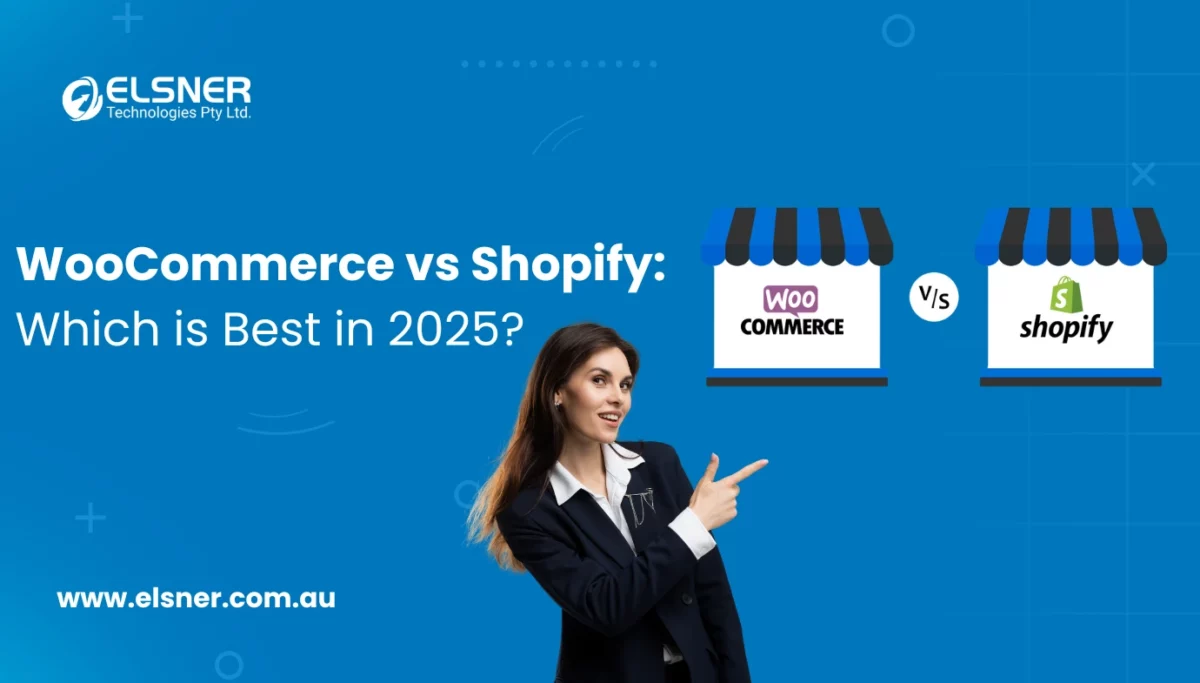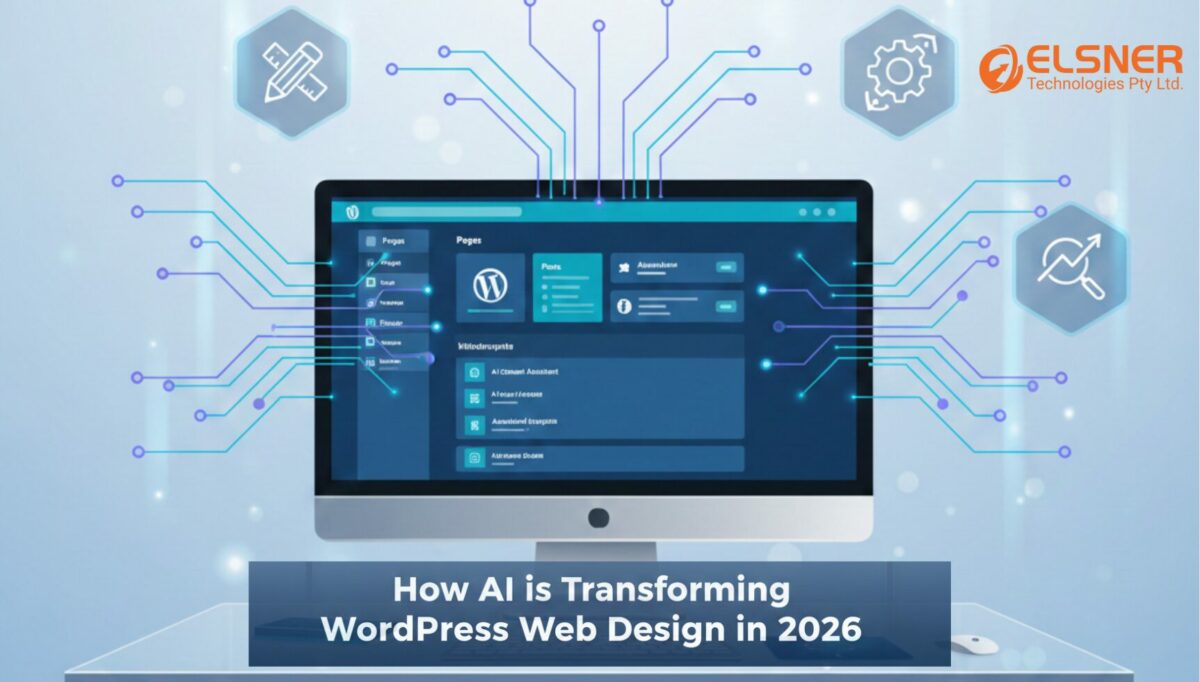WooCommerce vs Shopify: Which Platform is Right for Your Online Store in 2025?
WooCommerceIn 2025, eCommerce isn’t just booming; it is changing the face of the shopping world. More than 2.77 billion people are now expected to buy products online, and with retail eCommerce sales worldwide looking to soar towards $7.4 trillion, the opportunities for entrepreneurs could not be better. Whether you plan to bring your first product to life or scale your existing brand, one question will loom large: Which eCommerce platform will you use- WooCommerce or Shopify?
These two platforms dominate the online selling scene in Australia. Both are powerful, trusted, and packed with features, yet their approaches couldn’t be more different. Whether you’re a beginner looking for an easy setup or a developer seeking complete control, your brand’s flexibility, cost, growth, and long-term success in the Australian market will depend on the platform you choose.
It is no surprise that comparisons such as WooCommerce vs Shopify for online store configurations have also been keeping it hot, particularly for small business owners considering the WooCommerce vs Shopify pros and cons when choosing the right Shopify website development company for their needs.
So, let’s break down the WooCommerce vs. Shopify comparison in 2025: everything from setup to support to help you find what best fits your goals. This WooCommerce and Shopify comparison will clarify why choosing the right solution is key to your success.
Platform Basics: What Are WooCommerce and Shopify?
Before diving into the details, an overview of both platforms is necessary.
An open-source eCommerce plugin built for WordPress, WooCommerce turns any WordPress website into a fully functional online store. With an open-source solution, you can customise everything from design to checkout flows, making it easy to adapt. It’s ideal for Australian brands that want creative freedom, control over their data, and the ability to tailor customer experiences. Many businesses across Australia work with a WooCommerce development agency or a trusted WooCommerce developer in Sydney to make the most of this flexibility.
In contrast, Shopify is a Software-as-a-Service (SaaS) fully hosted eCommerce platform. Everything is pre-built, from hosting to payments. It is easy to start, fast to launch, and trustworthy. You can build an online store that looks great without writing a line of code, and for the custom stuff, Hire Shopify Developers or work with Shopify experts in Melbourne to add more polish.
The Shopify vs. WooCommerce divide is based on control vs. ease of use, and this WooCommerce and Shopify comparison assists you in determining which model best meets your requirements.
Ease of Use: Simplicity vs Flexibility
The first point of WooCommerce vs. Shopify in the online store comparison is ease of use. Not everyone wants to deal with plugin settings and server configurations—and this is where Shopify shines. Its clean, intuitive interface allows total beginners to build beautiful stores using drag-and-drop tools and app integrations. For many Australian entrepreneurs with limited time or technical skills, Shopify makes it possible to launch a store in just one day.
WooCommerce is the exact opposite and assumes that people have some fundamental knowledge of WordPress. It’s not necessarily hard, but it’s not click-and-go like Shopify. One must install WordPress, add WooCommerce, pick a theme, set up shipping and tax, and maintain hosting.
All of this can be made simpler with the help of WooCommerce website development. For many store owners, its flexibility alone is reason enough to navigate the learning curve.
Design & Customisation: Creative Control or Simplicity?
This storefront is your brand’s digital front door. With WooCommerce, all the freedom is in the user’s hands regarding design-custom themes, layout control, unique checkout flows, etc. All elements can be adjusted for optimal user-friendliness, especially if you hire a WooCommerce developer based in Sydney or elsewhere.
That is the beauty of WooCommerce for brands wishing to differentiate themselves or already established ones having a WordPress site.
When weighing Shopify vs WooCommerce pros and cons, customisation and control swing in WooCommerce’s favour.
Shopify does have good themes, most of which have been ensured to be mobile and conversion-friendly. However, less customisation is allowed unless you know a highly skilled Shopify developer who knows Liquid (Shopify’s templating language) inside out. Hence, Shopify’s design tools are great for less technically minded users and offer less flexibility than WooCommerce.
Feature & Integrations: The Power and Plugins
Both platforms are feature-rich, but their access and improvements differ.
With WooCommerce, the entire WordPress ecosystem is your playground. Thousands of plugins enhance functionality—from SEO and marketing to custom integrations for your CRM and shipping. Need to build a custom subscription model or launch a multilingual store? There’s a plugin for that, or you can hire a WooCommerce development company in Australia to create a tailored solution for your business.
Shopify, on the other hand, adopts an app-based model. There are over 8,000 apps in the App Store, covering almost every imaginable functionality—from loyalty programs to AI-powered product recommendations. Shopify’s built-in features work quite well, too, including integrated payments, POS support, and abandoned cart recovery.
While the extensibility is there for both platforms, Shopify vs WooCommerce remains a valid debate when it comes to integration priorities.
SEO Capacities: Visibility in Searches
If search visibility in 2025 remains one of the foremost sources of traffic for eCommerce, WooCommerce, riding on WordPress, definitely holds an SEO advantage. You can manipulate metadata, URL structures, redirects, images, and content. SEO tools like Yoast or Rank Math allow for deep inspection and optimisation.
Shopify’s SEO tools are somewhat rigid: They are good enough for editing your meta titles and descriptions, but its URL structures are sometimes set in stone, while certain advanced SEO features require third-party apps. For a deeper understanding, check out our Shopify SEO Guide to optimize your store effectively.
For all those who emphasise blog content or visibility using long-tail keywords, the comparison of WooCommerce vs Shopify for online store indicates the superiority of WooCommerce.
Performance & Scalability: Managing Changes
How a store performs—its loading speed, handling traffic spikes—can define the quality of a potential customer’s experience.
Shopify takes care of performance for you. It is hosted on a robust infrastructure designed to scale automatically, so server crashes or downtime due to flash sales won’t bother you.
WooCommerce’s performance depends on your hosting provider. Under qualified hosting, caching mechanisms, and optimisation from reputed WooCommerce development services, it can equal or outperform Shopify. However, setting up and right caching commissions are needed nowadays; otherwise, WooCommerce may crash with performance drops, mainly when high traffic loads occur.
Scalability is a frequent topic in any WooCommerce vs Shopify comparison, especially for those planning long-term growth.
Security & Maintenance: Whose to Preserve?
Security is non-negotiable, and with WooCommerce, you are responsible for keeping your site secure in terms of updates, backups, firewalls, SSL certificates, and PCI compliance. This aspect is good for Freedom, but one must be vigilant. Most companies utilise a WooCommerce development agency to keep their site alive.
Shopify does it all. Your store is secured with enterprise-level security, SSL certificates, and fraud protection right out of the box. There is no maintenance, no server patching—it’s all taken care of.
For risk-averse small businesses, the WooCommerce vs Shopify for small businesses becomes a discussion of control versus peace of mind.
Cost Breakdown: Predictable or Flexible Pricing?
The WooCommerce or Shopify for eCommerce decision often comes down to flexibility vs predictability in cost.
Shopify pricing is straightforward. Plans start at $39/month and increase depending on your needs. Shopify Success Stories show how businesses thrive despite the extras and apps that could increase your total. On top of your Shopify subscription, you will pay extra transaction fees if you don’t use Shopify Payments. The rest is a package deal—hosting, support, SSL, etc.
WooCommerce itself is free, but you’ll need to pay for hosting, domain registration, premium (and free) plugins, and possibly a developer. Some companies save lots of money, and others spend lots. The end result depends on just how much Do It Yourself versus custom work each one requires.
If you are attempting to save as much as possible while managing everything yourself, WooCommerce can be a little cheaper. However, any evaluation would say that if predictability is your thing, Shopify’s steady price model would be much easier.
Support and Community: Help When You Need It
Shopify provides 24/7 customer support via live chat, email, and phone. Their help centre is packed with tutorials, and you can hire Shopify experts in Melbourne or globally.
WooCommerce doesn’t have centralised support, but the global WordPress community is enormous. Forums, developer blogs, YouTube tutorials, and plugin-specific support channels are widely available. And if you hire a WooCommerce development agency, you’ll get specialised assistance tailored to your store.
Shopify is more suited for quick, novice-friendly help, while WooCommerce operates ideally in developer-heavy environments or when backed by skilled experts.
Best Use Cases
Let us explore the areas in which each platform shines.
Shopify is best for you if you:
- Just want to launch fast and with minimum setup.
- Need a reliable hosted solution that comes with built-in security.
- Run a dropshipping or DTC shop.
- Prefer a simple interface over infinite tweaking possibilities.
- Want an integrated POS and multi-channel selling.
Use WooCommerce if you:
- Already use or appreciate WordPress
- Require extensive SEO, blogging, or content marketing features
- Need tailored workflows or integrations
- Want full control over your data and platform
- Are you collaborating with a WooCommerce developer in Sydney or some other location
If you’re a small business, consider your capacity for handling tech when choosing between WooCommerce vs Shopify for small businesses.
Conclusion: WooCommerce or Shopify?
It’s really about what’s a better fit for running your business, not just the bells and whistles.
Go with Shopify for fast, easy, and everything done for you. It works excellently for the sole entrepreneur, novice, or brand racing toward growth without tech headaches. If you want a personalized touch, you can always hire Shopify developer to customize and scale your store.
If a company needs much customisation and excellent content marketing and prefers to define the online experience as it wishes, WooCommerce is the perfect fit. Backed by a trusted WooCommerce development agency, it is possible to build a store that is scalable and made just for you.
If you are treading the no man’s land of not knowing which is better for you, or if you want to create something fabulous, then Elsner Technologies has the best solutions for you. Being a top Shopify and WooCommerce development company in Australia,
Elsner Technologies is one of the leading brands for building highly meticulous eCommerce solutions around your organisation’s needs. Whether you are looking to hire Shopify experts in Melbourne or want custom WooCommerce development, it is about bringing your dreams to reality. Get in Touch with Elsner today to take your eCommerce business to the next level.
Your perfect eCommerce platform is just a decision away.
Frequently Asked Questions (FAQ’s)
Q1. Is WooCommerce better than Shopify for SEO?
Definitely. Because more complex SEO features are present, along with plugins such as Yoast.
Q2. Which of the two is cheaper to run in the long term?
Self-managed WooCommerce could be more affordable; Shopify has predictable rates, but apps and transaction fees can be high.
Q3. Can I switch from Shopify to WooCommerce later?
Yes. But this will include migrating your products, orders, and content. You should be wise about that at the start, or use experts such as Elsner, as they will work for a smooth migration.
Q4. Which is better for small businesses—Shopify or WooCommerce?
Both will work, but which WooCommerce vs Shopify option is best for small businesses will depend on your technical abilities and pocket money. Shopify is easier, and WooCommerce is more flexible.
Q5. Do I need coding skills to use WooCommerce or Shopify?
No. Or does it take coding to work with Shopify? You could use WooCommerce without coding, although most customisations will benefit from a developer’s help.














